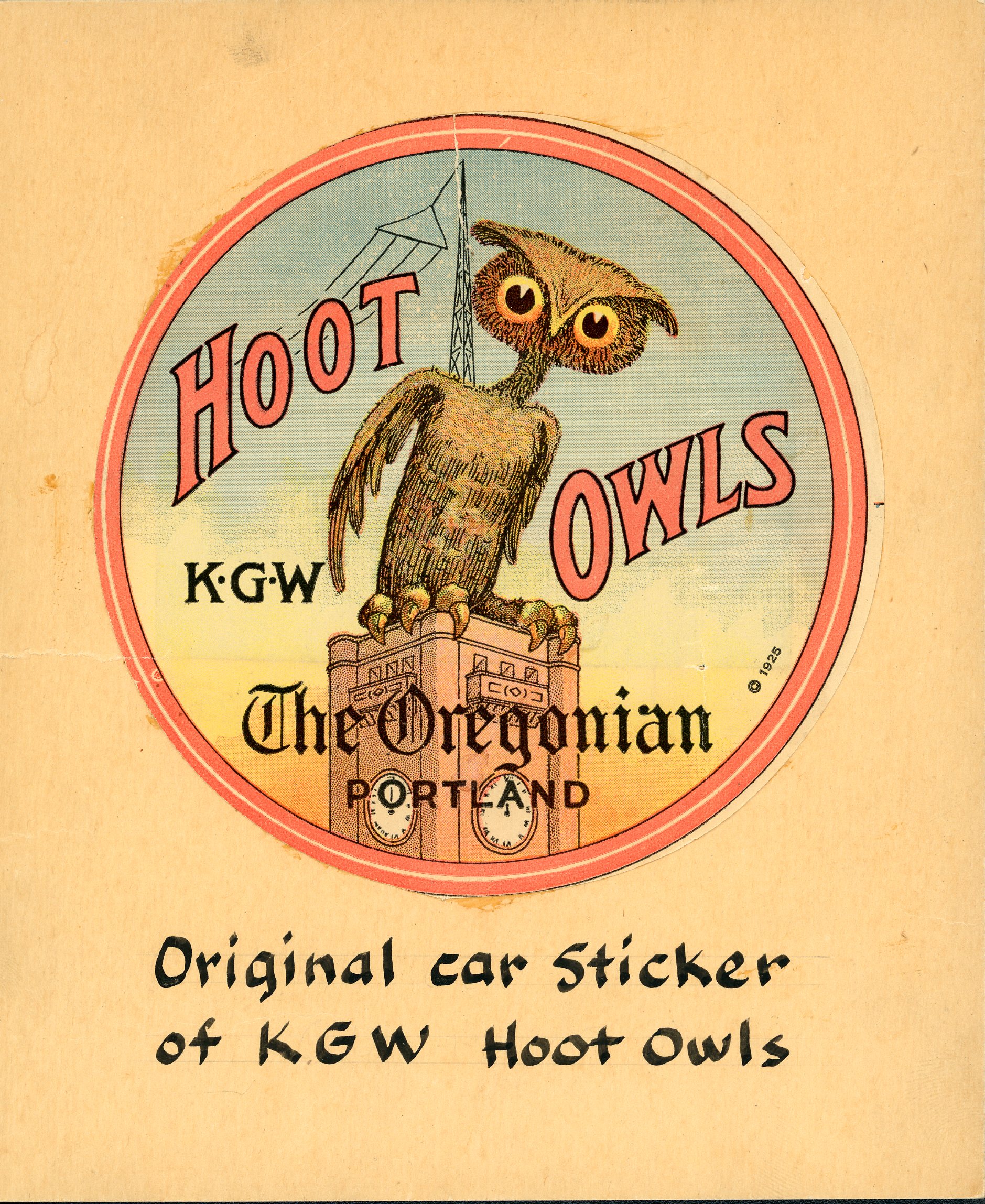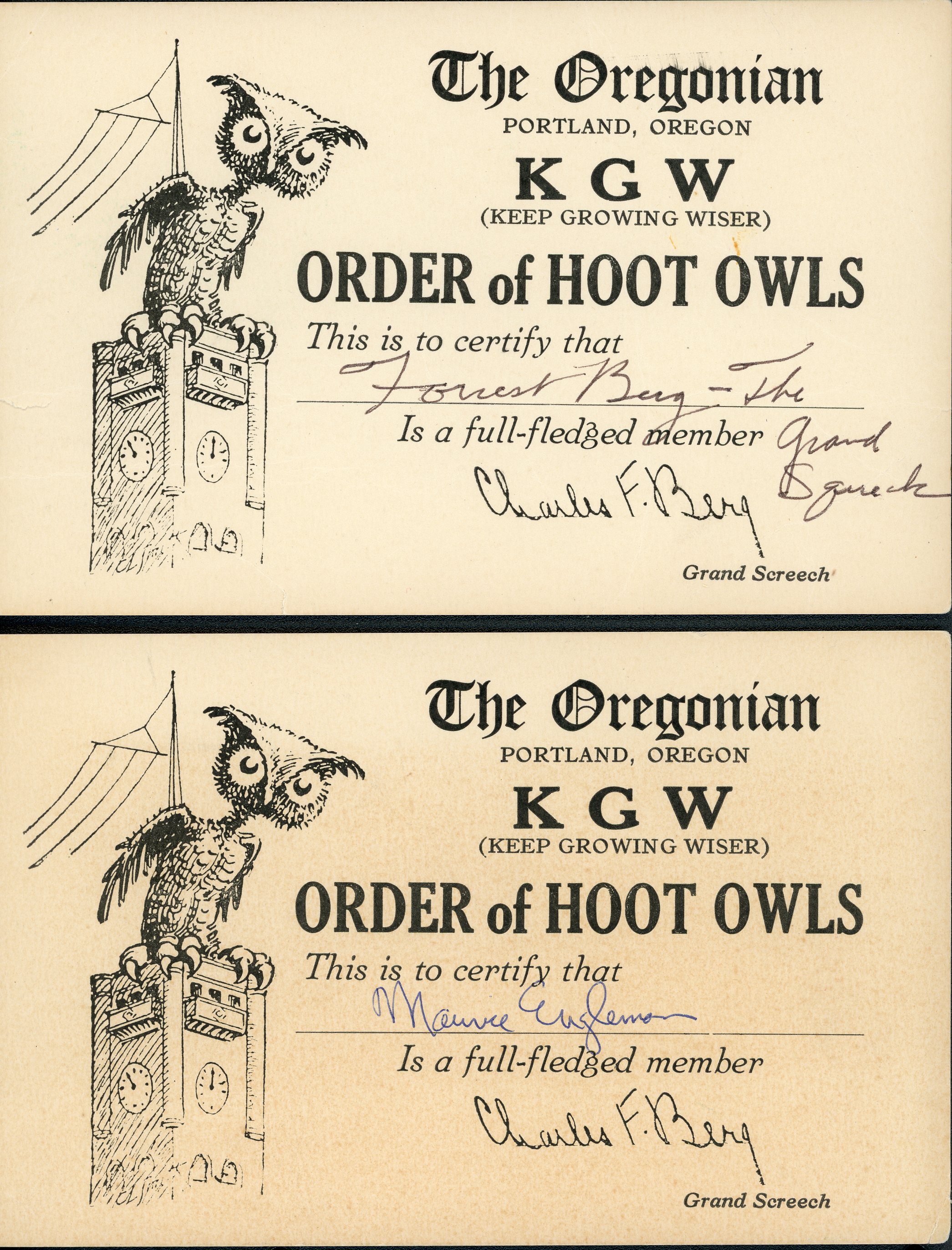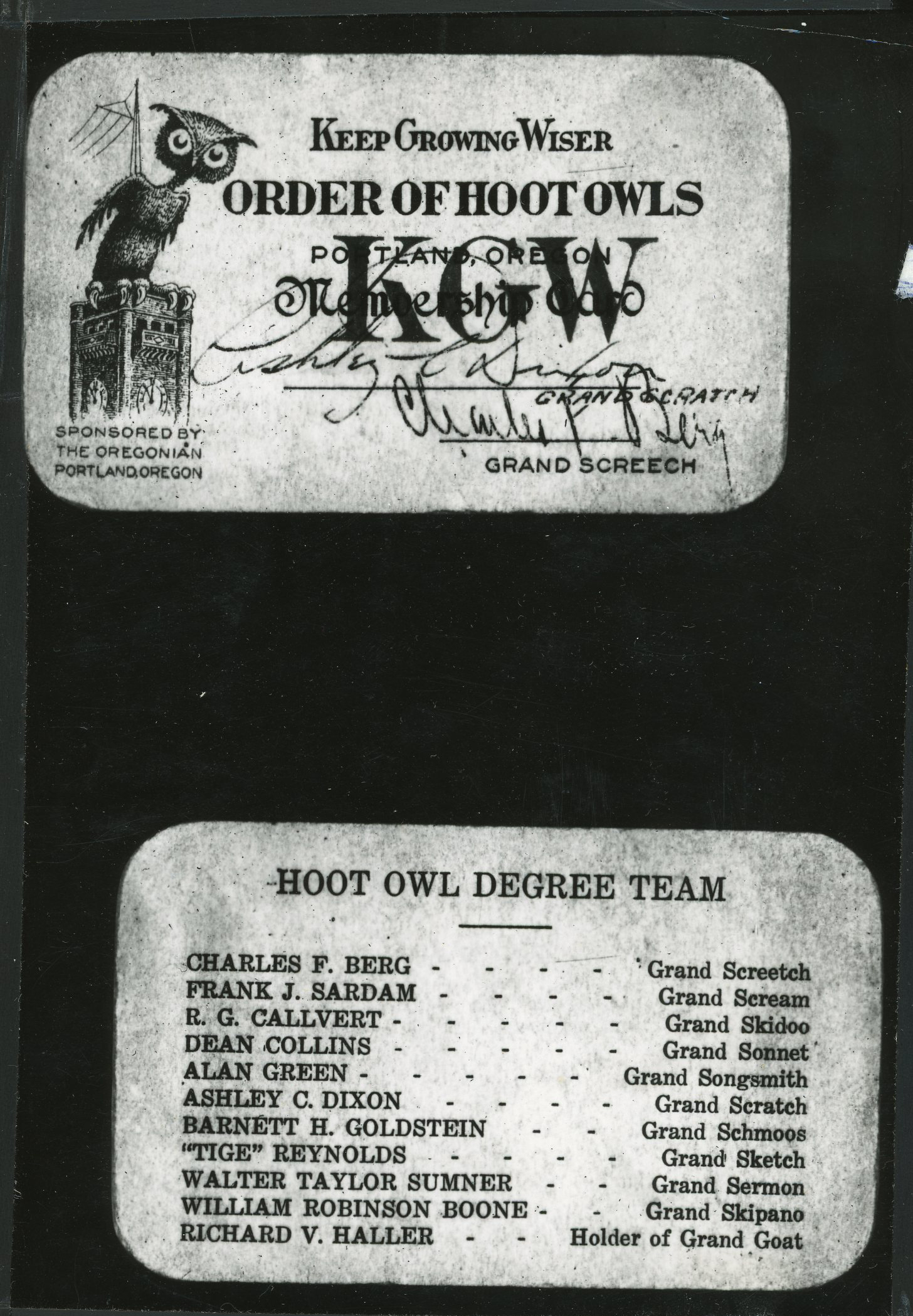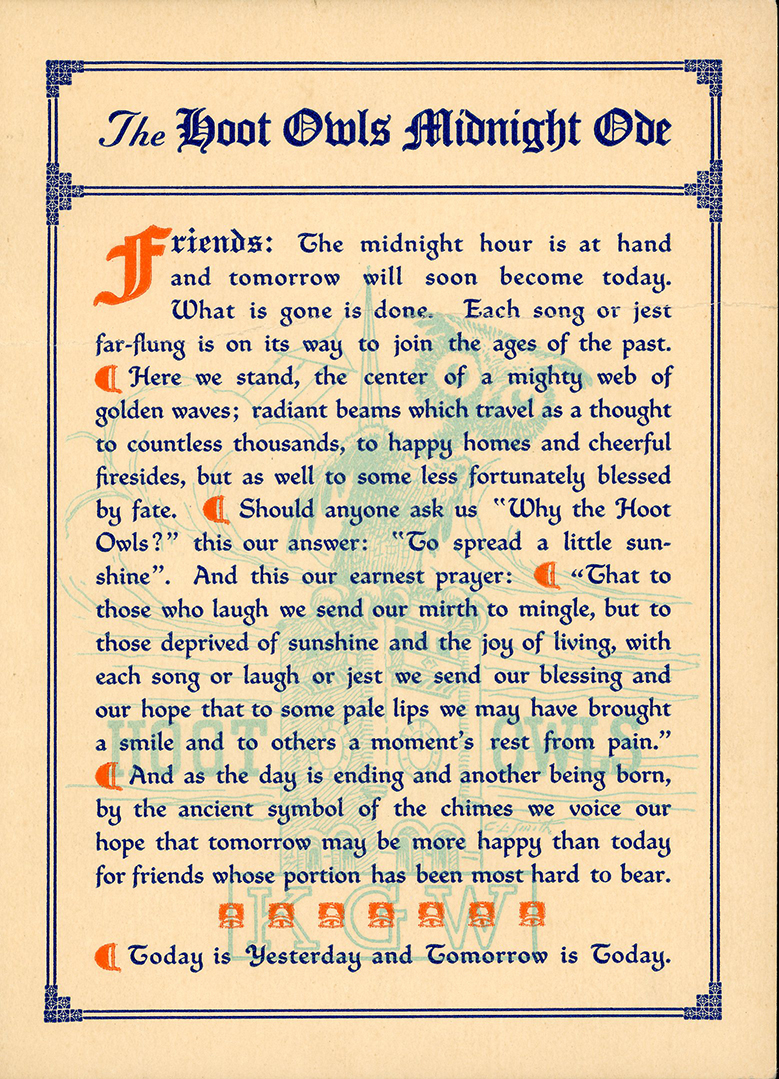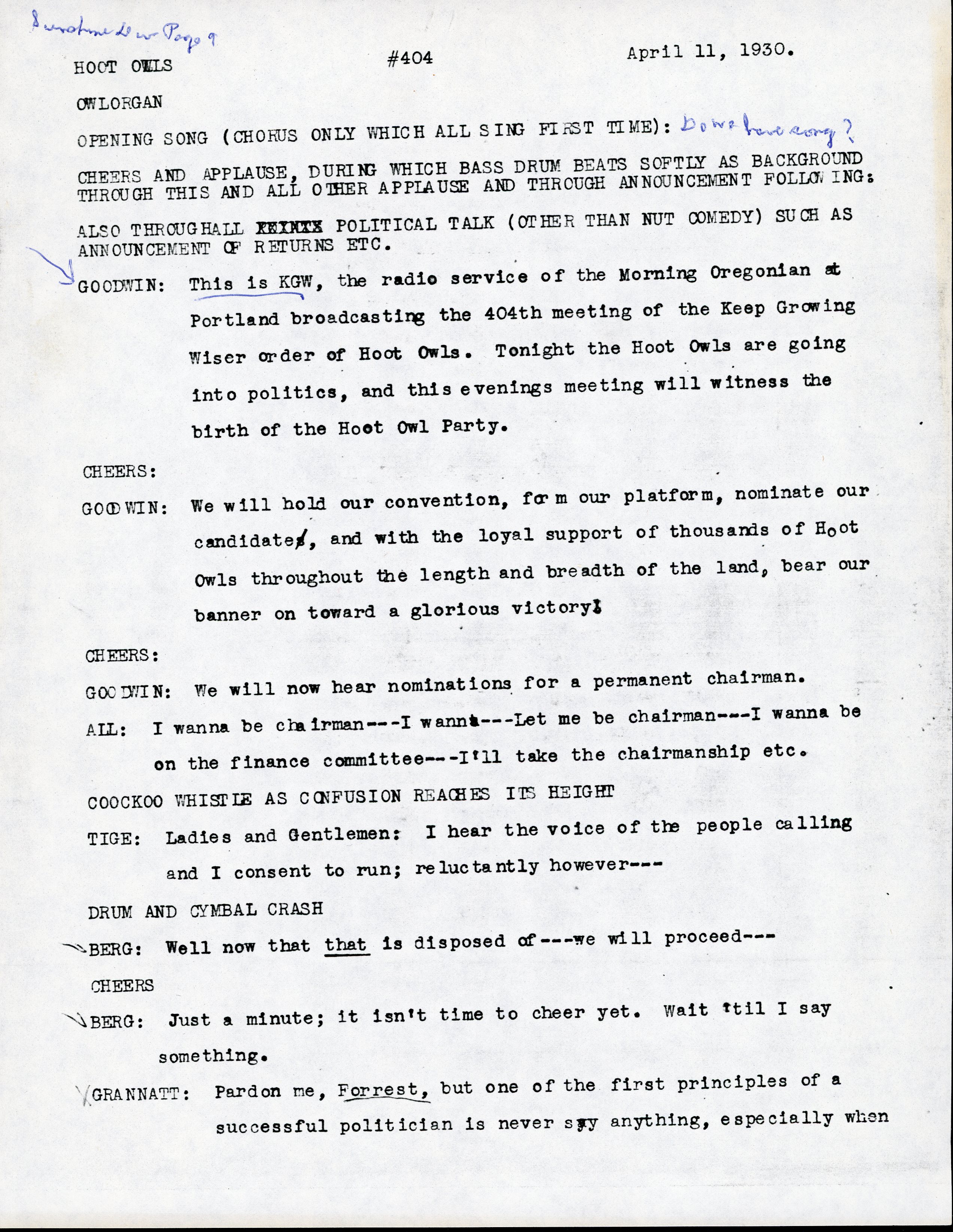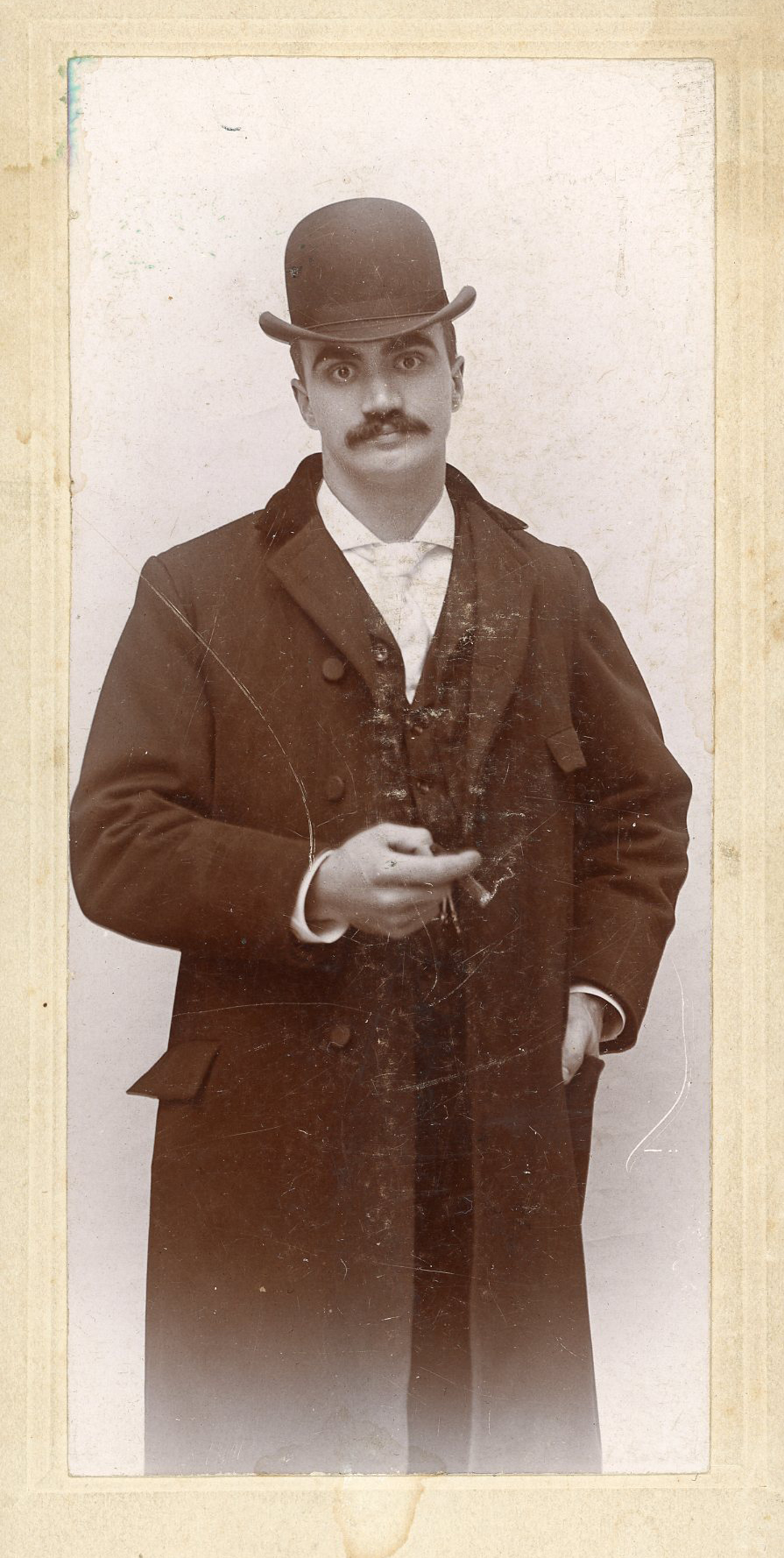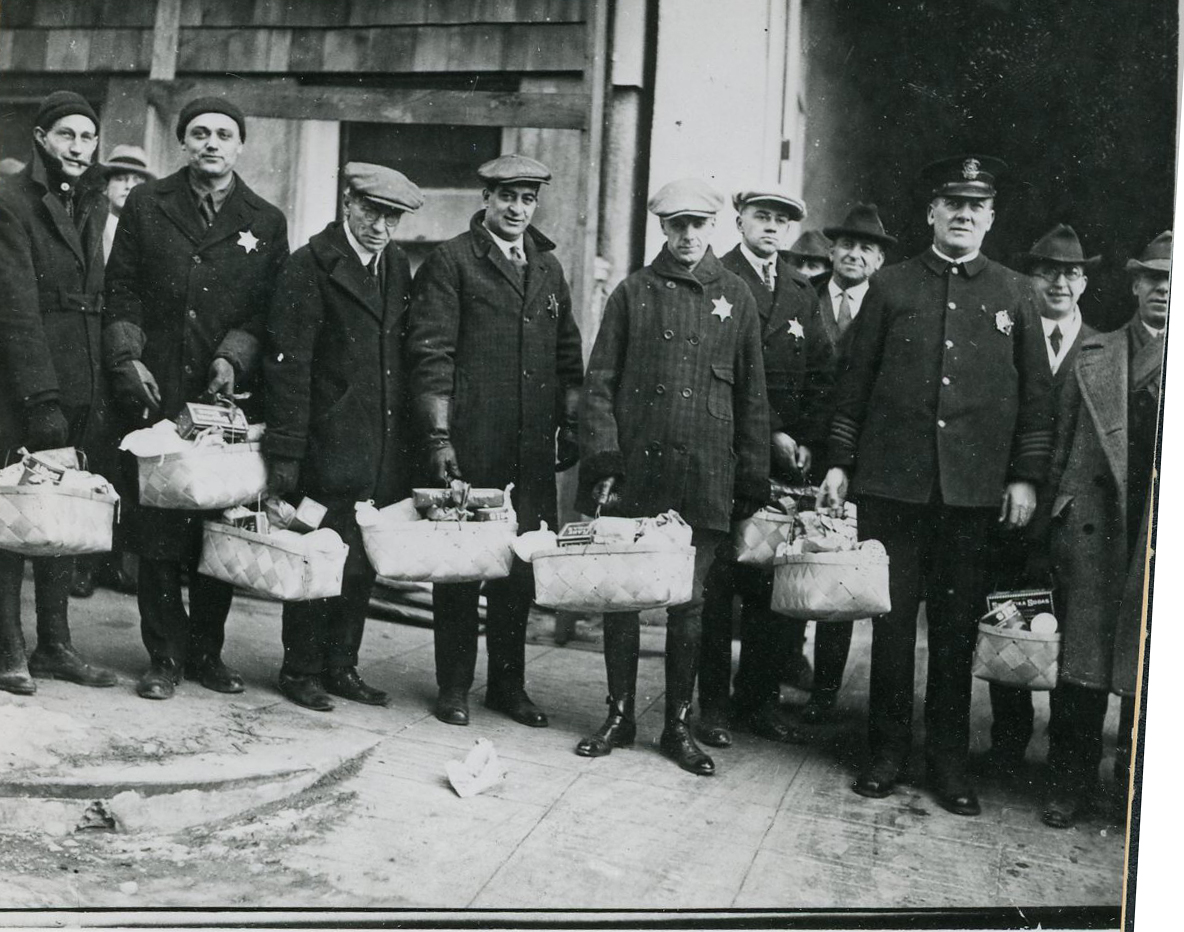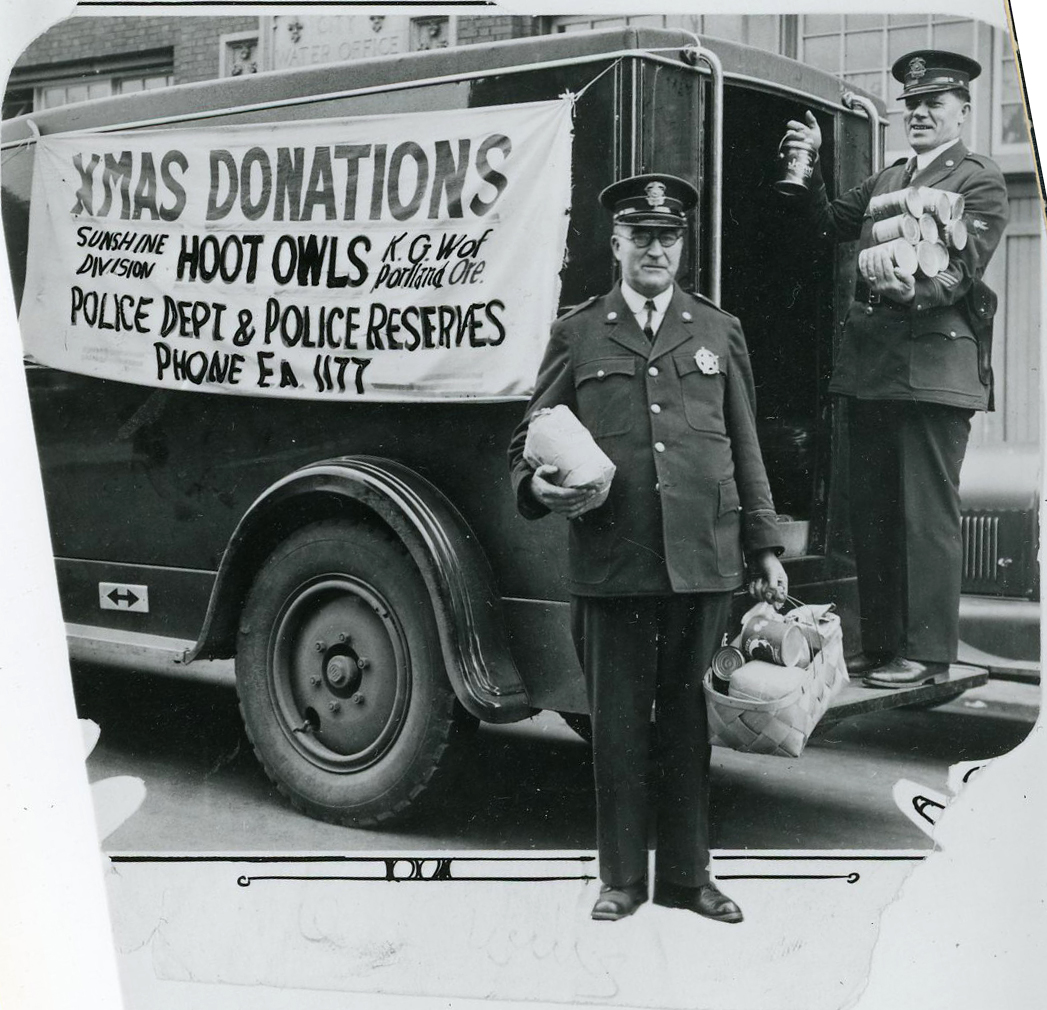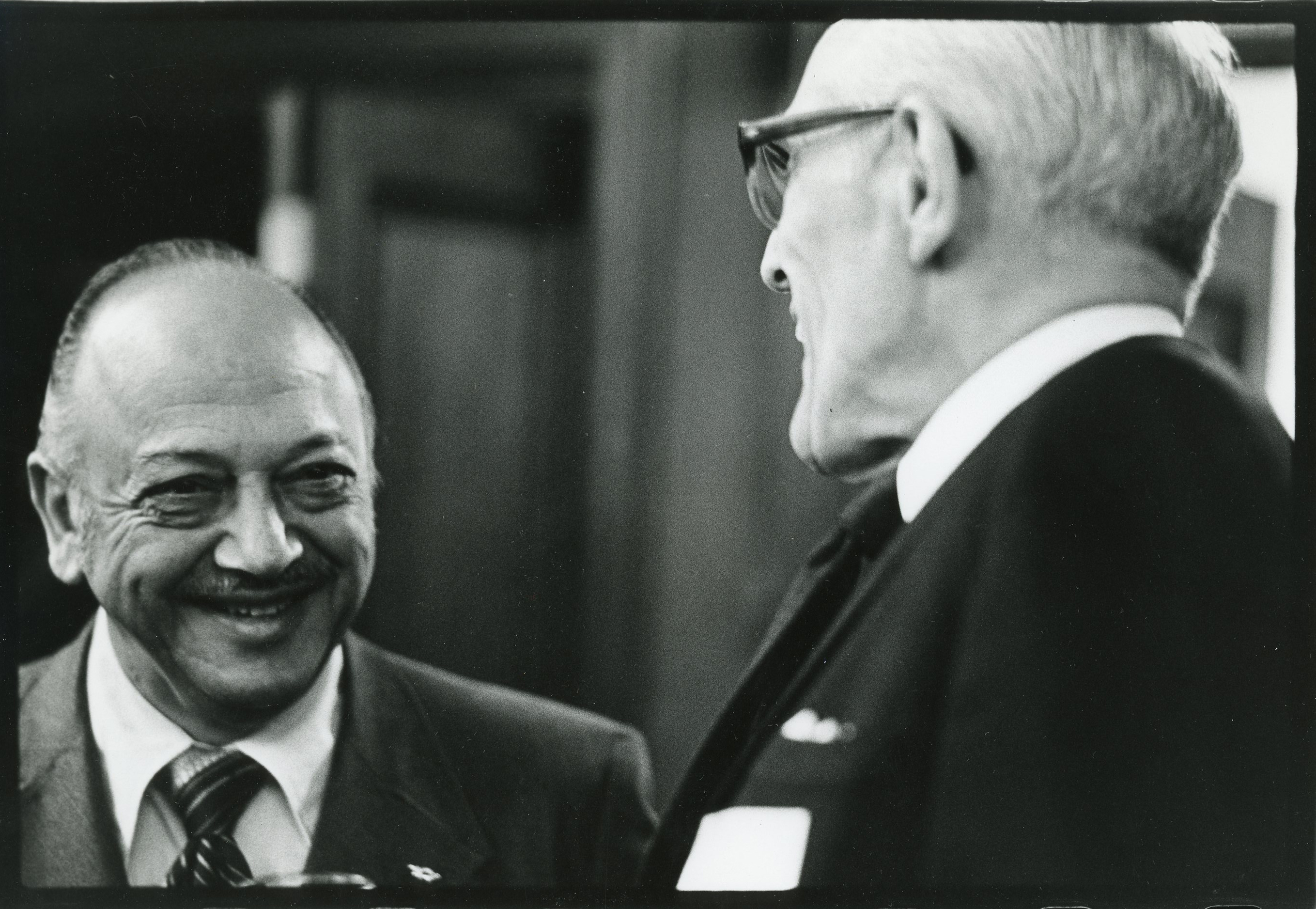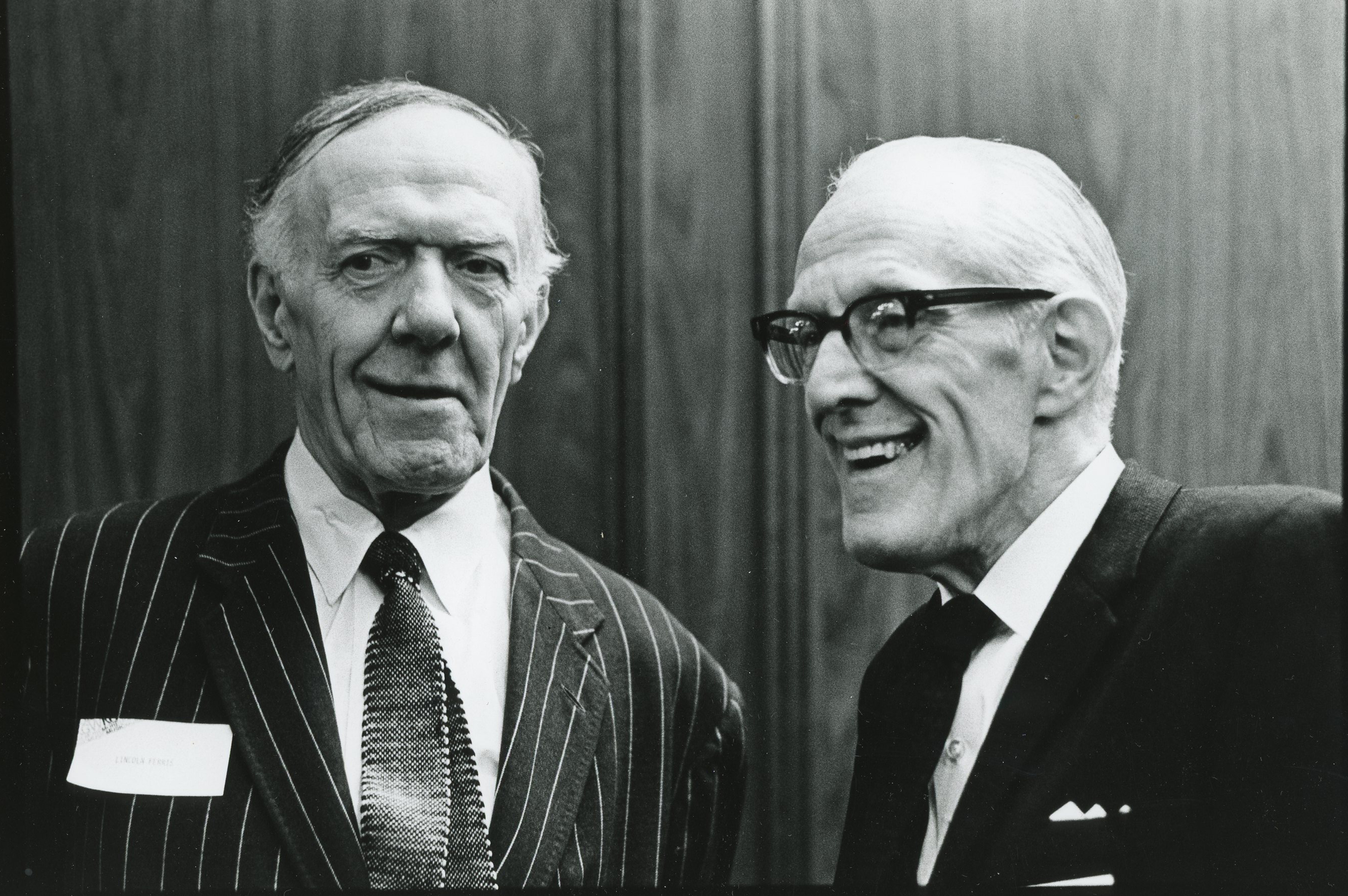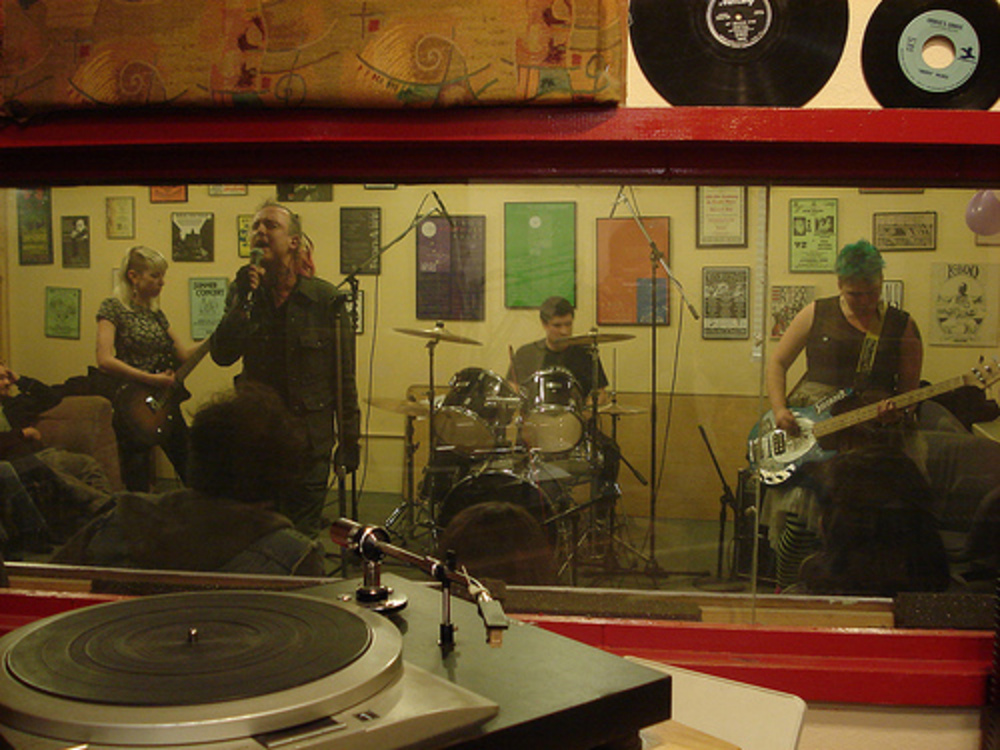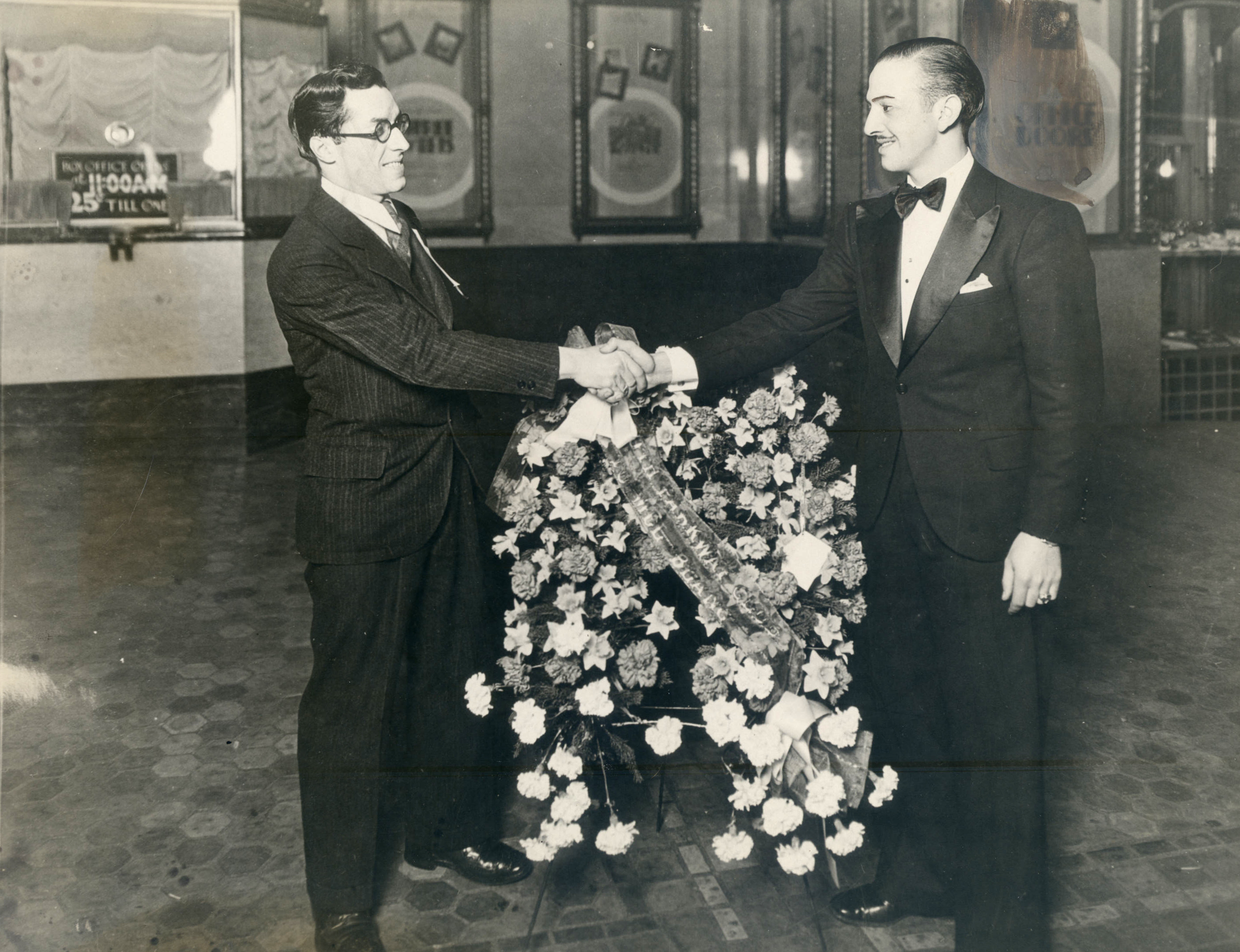The Portland Oregonian launched KGW Radio in March 1922. Nine months later, the paper’s editor, Edgar Piper, heard a late-night radio music program while traveling. On his return home, he and Associate Editor Ronald Callvert began planning a similar program on KGW. Together with Charles F. Berg, a respected civic figure who owned an upscale women’s clothing store, they created the Keep Growing Wiser Order of Hoot Owls. Berg recruited friends from Portland’s business community to staff the all-volunteer effort. Frank Sardam, a Northwestern Life Insurance Company agent, and KGW announcer Dick Haller also helped design the program.
The program launched on January 29, 1923, with Portland Mayor George Baker and a cast of prominent Portlanders. It was unlike anything else on the radio. “The ‘Hoot Owls’ do not sound like regular radio stuff,” the Wireless Age reported in May 1924. “They sound as though there was a dandy party going on in the next room and somebody had left the door open.” The noncommercial undertaking was entirely supported by KGW, so the broadcasts never included commercials.
Settling into a ninety-minute slot at ten-thirty on Friday nights, the program featured satirical sketches and musical entertainment stylized as a meeting of a mythical fraternal lodge. Cast members included Charles Berg as Grand Screech, Oregonian cartoonist Tige Reynolds as Grand Sketch, Pacific Telephone & Telegraph Company’s Fred Spoeri as Grand Central, and Barney Goldstein, a former U.S. District Attorney, as Grand Silence. (Some perceived the titles as poking fun at the Ku Klux Klan, which was gaining attention in Oregon at the time.) Episcopal Bishop Walter Taylor Sumner, in the role of Grand Sermon, played the program’s theme song on the Owlorgan, a wheezing calliope. Mel Blanc joined the cast as Grand Snicker in 1926, providing sound effects that he later took to Hollywood.
Each week, a core writing group lunched with Piper to sketch ideas for the show, and insurance agent Harry Grannatt eventually became its principal writer. Some of the program’s best-remembered offerings were “Dill Pickle Duets,” “Curing of Hamlet,” the “Cheese Opera” (set in Tillamook), and songs like “In Hay Fever Time I’ll Meet You in McMinnville.”
Listeners applied to be members of the Hoot Owls, and shortly after the program’s debut there were members in forty-four states, five Canadian provinces, Alaska, Hawaii, and Mexico. During the May 7, 1923, broadcast for example, the Hoot Owls inducted over sixty members, including some from as far away as North Dakota, Wisconsin, Texas, and Pennsylvania. In Mexico City, a local theatre regularly placed a radio on stage and interrupted the movie so patrons could listen to the program. The Hoot Owls eventually had ninety thousand members, including Calvin Coolidge, Warren G. Harding, Babe Ruth, and the Marx Brothers. Sunset Magazine dubbed the Hoot Owls the “Laughter Lodge of the Air.”
While generally broadcast only over KGW, the radio spectrum’s lack of congestion allowed for distant radio reception, which both explains the number of members and why newspapers outside the area carried program listings for “Hoot Owls.” The program was also occasionally simulcast over San Francisco and Seattle stations, as well as on the NBC network. While some stations in Portland and elsewhere attempted to create similar programs, none achieved national celebrity like the “Hoot Owls” did.
KGW’s studios and its archives were destroyed in a devastating fire in 1943. S.I. Newhouse bought the Oregonian in 1950, and then sold KGW to Dorothy Bullitt, the owner of King Broadcasting Company in Seattle, in 1953. In an unpublished history of KGW that Bullitt commissioned soon after acquiring the company, scriptwriter Helen Platt wrote that the Hoot Owls could claim numerous “firsts”: the first variety show on radio, the first variety broadcast from a script, the first quiz show, and the first live audience program broadcast from a remote location.
Heavily influenced by Bishop Sumner, the Hoot Owls also focused on two charitable endeavors: the Rainbow Division and the Sunshine Divisions (possibly named for two U.S. Army divisions made famous during World War I). The Rainbow Division raised money to establish a trust fund for orphans’ medical care and, as described in an Oregonian editorial, to provide radio sets to “shut-ins who otherwise would be without any form of entertainment.”
The Sunshine Division was created in 1923 when the Portland Police asked the Hoot Owls to help collect Christmas trees and food baskets for people in need. The effort became a year-round enterprise as listeners generously contributed to the cause. During the Depression, the Hoot Owl Cannery opened in McMinnville when its owner donated a week’s work to the Sunshine Division. Hoot Owl chapters had been established in many Oregon cities, and some apparently assisted in these charitable endeavors.
The challenge of writing and performing the all-volunteer weekly program was considerable, and some cast members eventually left the show. Berg was considered the “heart” of the Hoot Owls for both his vision and his central role as Grand Screech; and when he began developing health problems, his son Forrest joined the effort and took the role of Grand Squeak.
Charles Berg’s death on September 1, 1932, dealt the program a devastating blow. The last “Hoot Owl” program, with Forrest Berg presiding, was broadcast four months later, on January 6, 1933. The Sunshine Division continued its charitable work under the Portland Police and still operates as a nonprofit corporation.
-
![]()
Hoot Owls original car sticker.
Courtesy Oregon Hist. Soc. Research Lib., Mss 2512-2
-
![]()
Hoot Owls membership cards, signed by Charles Berg.
Courtesy Oregon Hist. Soc. Research Lib., Mss 2512-2
-
![]()
KGW Hoot Owls card.
Courtesy Oregon Hist. Soc. Research Lib., Org Lot 714
-
![]()
The Hoot Owls Midnight Ode.
Courtesy Oregon Hist. Soc. Research Lib., Mss 2512-2
-
![Downloadable excerpt available under Documents tab.]()
Hoot Owls songbook, c. 1929.
Downloadable excerpt available under Documents tab. Courtesy Oregon Hist. Soc. Research Lib., PAM808.7
-
![Read the entire script under Documents tab]()
Hoot Owls script, April 11, 1930.
Read the entire script under Documents tab Courtesy Oregon Hist. Soc. Research Lib., Mss2512-2
-
![]()
Edgar Piper.
Courtesy Oregon Hist. Soc. Research Lib., Acc11281
-
![]()
Charles F. Berg, 1923.
Courtesy Oregon Hist. Soc. Research Lib., 000780
-
![]()
Rev. Walter Taylor Sumner, 1931.
Courtesy Oregon Hist. Soc. Research Lib., 015109
-
![]()
George L. Baker.
Courtesy Oregon Hist. Soc. Research Lib., OrHi48540
-
![]()
KGW Hoot Owls and Police Sunshine Division, c.1927.
Courtesy Oregon Hist. Soc. Research Lib., 021608
-
![]()
Patrolmen Strawn and Rekdahl collect contributions for Sunshine Division, Dec. 1927.
Courtesy Oregon Hist. Soc. Research Lib., 021604
-
![]()
Mel Blanc and Harry Grannatt, 1972.
Courtesy Oregon Hist. Soc. Research Lib., 25930
-
![]()
Lincoln Ferris and Harry Grannatt, 1972.
Courtesy Oregon Hist. Soc. Research Lib., 25932
-
![]()
Mel Blanc, Frank Hemingway, Tom McCall, and Abe Bercovitz, 1972.
Courtesy Oregon Hist. Soc. Research Lib., OrHi91357
Related Entries
-
![As It Was (Jefferson Public Radio)]()
As It Was (Jefferson Public Radio)
Jefferson Public Radio (JPR), a network of satellite radio stations ser…
-
![KBOO Community Radio]()
KBOO Community Radio
In 2008, KBOO Community Radio (90.7 FM) celebrated forty years on the a…
-
![Mel Blanc (1908-1989)]()
Mel Blanc (1908-1989)
Mel Blanc, who acted the voice of Bugs Bunny and over four hundred othe…
Map This on the Oregon History WayFinder
The Oregon History Wayfinder is an interactive map that identifies significant places, people, and events in Oregon history.
Further Reading
Hoot Owls Classics. 2 Vols. Portland, Ore.: Sunshine Division, 1928, 1929.
Kramer, Ronald. Pioneer Mikes: A History fo Radio and Television in Oregon. Ashland, Ore.: JPR Foundation, 2009.
Oregonian, January 26, 1923; May 14, 1923.
Platt, Helen. "The Fabulous Hoot Owls." History of KGW. Unpublished manuscript, Helen Platt Papers, Oregon Historical Society, Mss 1134.

